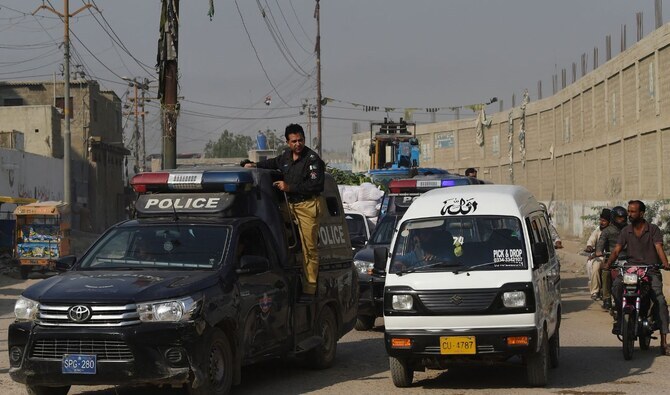KARACHI: A Pakistani man has been arrested in Karachi on charges of possession of child pornography and blackmailing minors in the United States following a complaint from the American consulate in the port city this week, a Pakistani official said on Thursday
The suspect, Agha Sarwar Abbas, was arrested on Mar. 11 following a complaint filed by a special agent of the US Department of State that alleged he was in possession of child pornography and was extorting US minors by using material obtained through various online platforms, the First Information Report (FIR) filed by police said. After a request from the US Consulate in Karachi, a case was registered under Sections 16, 22 and 24 of Pakistan’s Prevention of Electronic Crimes Act (PECA) 2016, which criminalizes offenses related to child pornography and online exploitation.
“Agha Sarwar Abbas has been arrested on a complaint from the US consulate for his alleged involvement in child pornography and blackmailing minors in the US,” Ameer Ali, an investigation officer with the cybercrime wing of the Federal Investigation Agency (FIA), told Arab News. “The court granted us a five-day physical remand for further questioning.”
The US Consulate said it could not comment on an ongoing legal case.
On Wednesday, FIA informed Judicial Magistrate East Karachi that Abbas had admitted to creating a fake online identity and was pretending to be a US citizen named Brandon Liechier to gain the trust of minors.
According to the FIR, the suspect has confessed during interrogation “to using personal data for the purposes of blackmail and threats based on recorded videos of US minor citizens.”
The agency said it had raided Abbas’s residence in Karachi’s New Rizwia Society and seized multiple devices, including a laptop and an iPad, that allegedly contained child pornographic material. Investigators said they had also identified several online platforms, including Whereby.com, Google Meet, Snapchat, and 411.com, that the suspect was using to establish contact with victims. Through these platforms, he engaged in video calls and text chats, allegedly forcing minors to share personal and objectionable content.
According to the police report, the investigation had so far revealed that Abbas used personal data, including home addresses, to threaten victims with the release of “compromising material” unless they complied with his demands. Abbas also allegedly accessed adult websites to facilitate his activities, with a digital forensic analysis confirming the presence of child pornographic content and extortion messages on his seized devices.
On Wednesday, the FIA sought a 14-day police remand for Abbas from a local magistrate who only granted five days, until Mar. 18.
Child pornography is illegal in Pakistan. Suspects convicted in child pornography cases can be subject to up to 20 years in prison and large fines.












